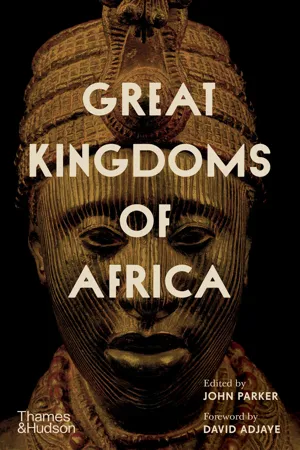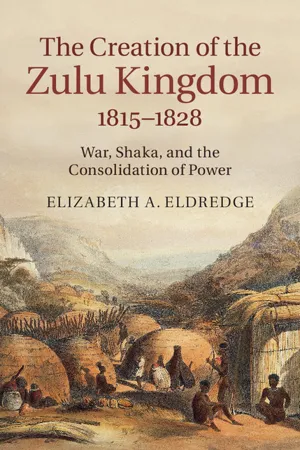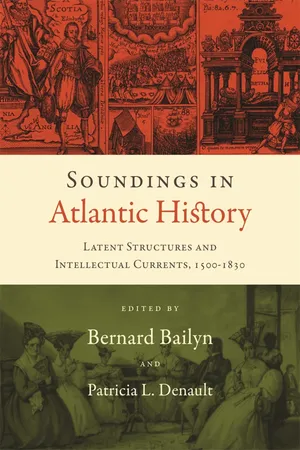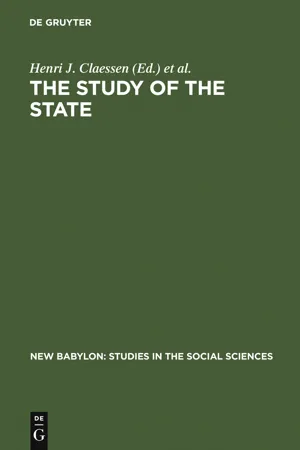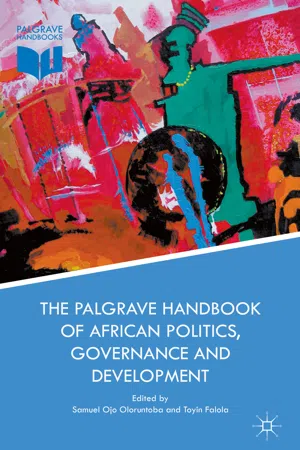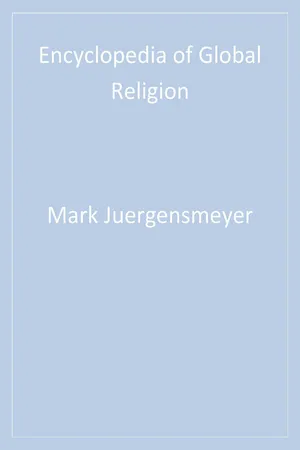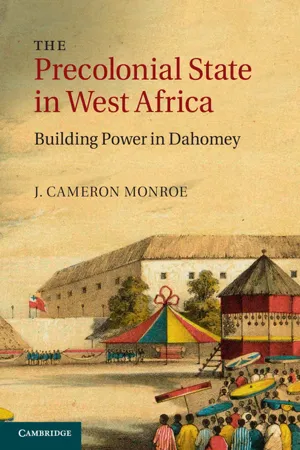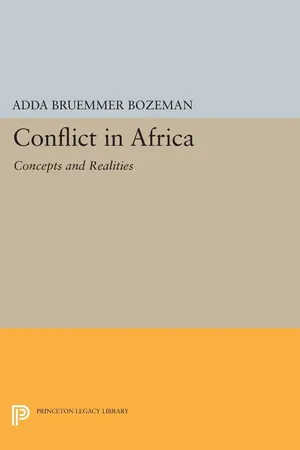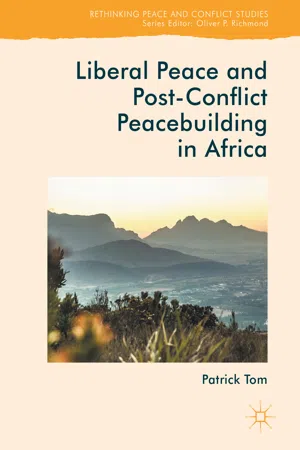History
African Kingdoms
African Kingdoms were powerful and influential states that existed in various regions of Africa before the colonial period. They were characterized by strong political structures, advanced trade networks, and rich cultural traditions. Some notable African Kingdoms include the Kingdom of Aksum, Ghana Empire, Mali Empire, and the Kingdom of Kongo. These kingdoms played a significant role in shaping the history and development of Africa.
Written by Perlego with AI-assistance
Related key terms
1 of 5
9 Key excerpts on "African Kingdoms"
- eBook - ePub
- John Parker, David Adjaye(Authors)
- 2023(Publication Date)
- Thames and Hudson Ltd(Publisher)
Eswatini remains one of just a handful of absolute monarchies – systems of government in which a hereditary ruler holds or dominates executive power – left in today’s world. So-called constitutional monarchies, such as the United Kingdom or Japan, are more common: in these, kings or queens continue to symbolize or embody the nation as ‘head of state’, but real authority has been devolved to representative bodies like parliaments. Yet the decline of royal power is a relatively recent phenomenon in world history: dynastic kings emerged as the rulers of the earliest centralized states in the Middle East, Africa, Asia, Europe and the Americas, and continued generally to hold sway for thousands of years until the idea of absolute monarchy began to come under attack from the seventeenth century. In Africa, as elsewhere, kingship went into terminal decline only in the twentieth century and in some cases this is an ongoing process: in Morocco, which following independence in 1956 saw the restoration of the long-established Alaouite dynasty, it was as recently as 2011 that King Mohammed VI agreed to a reduction in his autocratic power in an effort to placate popular protest associated with the Arab Spring. The current direction of those reforms, however, is unclear. Throughout much of the rest of the continent, moreover, ‘traditional’ kingship continues to function within modern nation-states. Shorn of most of its political sovereignty, it remains a focus for older and more localized forms of identity, culture and sacred power. This is not to say that centralized kingdoms dominated Africa’s varied political landscapes throughout history: as we will see, the ability of many of the continent’s peoples to govern themselves without recourse to kings may be just as important as the state-building efforts of would-be dynastic rulers. Yet from the ancient Nile Valley to the savannas of medieval West Africa, the highlands of Ethiopia and on to the forests and grasslands stretching away to the south, African civilizations have given rise to some of the world’s most impressive kingdoms. The history of these kingdoms and the nature of royal power at their core is the subject of this book.Over the course of some five thousand years of recorded history, Africa has witnessed the rise and decline of hundreds of kingdoms, great and small. These have been ruled by countless kings: the great majority of them have been men, but queens too have played a role in the African past, as have powerful ‘queen mothers’ like the Ndlovukati of Eswatini. No one book can consider all of them, so what this one does is to focus on nine key regions where centralized states and expansive empires emerged at different times to dominate the political landscape. Some of the nine chapters look at the history of a single famous kingdom, while others trace a broader and longer political tradition that gave rise to a sequence of states. Perhaps the best-known of these regional trajectories is the succession of three great empires in medieval West Africa: Ghana, Mali and Songhay, examined in chapter 2 by Rahmane Idrissa. The first chapter, by David Wengrow, also explores a wider regional context by shifting the history of the emergence of Africa’s earliest kingdoms away from its established focus on pharaonic Egypt to a dialogue along the Nile Valley, between Egypt to the north and Nubia to the south. This analysis sets the tone for the chapters that follow: their aim is not simply to offer chronological narratives or reiterate received wisdoms, but to consider fresh insights into the role of kingdoms and kingship in African history. Understandings of this key aspect of Africa’s past have changed in significant ways since the history of the continent emerged as a subject of sustained academic study in the mid-twentieth century. Over that time, much has been achieved in recovering and interpreting histories of state-building in Africa: no longer is the continent’s deep past an indistinct realm of ‘lost kingdoms’. Yet the African past does remain poorly integrated with that of the rest of the world – a marginalization, as Michael A. Gomez argues in his recent study of empire in West Africa, that has only been underlined with the recent emergence of the field of ‘global’ history.1 - eBook - PDF
The Creation of the Zulu Kingdom, 1815–1828
War, Shaka, and the Consolidation of Power
- Elizabeth A. Eldredge(Author)
- 2014(Publication Date)
- Cambridge University Press(Publisher)
Chapter 1 Political History in Precolonial Africa: The Case of the AmaZulu Kingdom Many of the kingdoms of precolonial Africa still exist today in name, in sentiment, in affiliation, and in residual forms of identification. The shifting composition and open boundaries of social and political groups over centuries render their residual names, still found as family names and place names, ambiguous outside of their historical context. Associated with a distinct geographic location, a common political his- tory, and a common culture and language as the result of cultural assimi- lation that had followed political and social consolidation, the large political units of the past were the so-called “tribes” identified by European western observers. Europeans, by the time of the advent of colonial rule in the nineteenth century, perceived only the primitive aspects of an impoverished material culture rather than the generations and centuries of steadily increasing political sophistication that had finally created institutionalized states in the form of kingdoms. As else- where in the world, these large political units had multicultural origins and had been forged by cooperation and warfare, ambition, and submis- sion. These kingdoms were the products of leaders who were chiefs, kings, and military commanders and of their followers or adherents or subjects who produced the food and marched into battle on behalf of their chiefs, kings, ancestors, and children in the name of their chiefdom, kingdom, or empire. The colonization of most of the African continent by the foreign nations of Europe curtailed abruptly the independence and sovereignty of African chiefdoms and kingdoms. Even where indirect colonial rule allowed the continuation of the forms and functions of precolonial polit- ical units, chiefdoms, and kingdoms with chiefs and kings, the political 1 - eBook - PDF
Soundings in Atlantic History
Latent Structures and Intellectual Currents, 1500–1830
- Bernard Bailyn, Patricia L. Denault, Bernard Bailyn, Patricia L. Denault, Patricia L Denault(Authors)
- 2009(Publication Date)
- Harvard University Press(Publisher)
5 In fact, Africa had a wide variety of polities, ranging from micro-units to much larger areas like the Kingdom of Kongo and Ndongo. These entities were also constitutionally complex and varied, and they enjoyed varying degrees of legitimacy. Many underwent radical changes over time, all of which affected both the way their subjects or citizens viewed themselves and the role of the state in shaping their self-conception. Not all states were equally successful in shaping ideologies and conceptions that informed African identities in the Americas. In order to explore this variety, we will compare two African states, Kongo and Dahomey, to argue that the way the state functioned over time and the degree to which the subjects responded were crucial to the state’s role in forming identities. Kongo and Dahomey, 1660–1815 87 Kongo and Dahomey: Background In the mid-seventeenth century Kongo ruled some half a million people living in a territory of over 100,000 square kilometers located in the re-gion just south of the Congo River in modern-day northern Angola and western Democratic Republic of Congo. Most of its people spoke the Kikongo language, though the kingdom also ruled related Kimbundu speakers on its southern border. Kongo was already in existence when the first Portuguese navigators arrived on its Atlantic coast in 1483 and had probably been formed at least a century earlier. Dahomey, located in a gap in the West Atlantic rainforest in modern-day Benin, had far less surface area, only about 8,000 square kilometers, but its population probably numbered around 350,000 by the early eighteenth century. It came to prominence in that period, when leaders of the inland core province of Abomey conquered their neighbors in the closely related Fon-and Ewe-speaking region along the coast and in the farther inte-rior. Both kingdoms contained enslaved people from outside their core zones as permanent residents. - eBook - PDF
- Henri J. Claessen, Peter Skalnik, Henri J. Claessen, Peter Skalnik(Authors)
- 2011(Publication Date)
- De Gruyter Mouton(Publisher)
In an early thesis I described these as 'tribal kingdoms' — tribal denoting the lineage structure, kingdoms the possession of kingship and a complex form of government (Lloyd 1952). I saw these as intermediary between the 'stateless' and 'state' societies of African Political Systems, and probably constituting a link in an evolutionary chain. In an early article (Lloyd 1954), I compared four Yoruba political systems: one lacking kingship altogether; one in which political office was achieved through progression through a series of title grades; and two in which chiefs were elected by their descent group. But it was impossible for me to say how these kingdoms had evolved or whether my few examples were stages in an evolutionary sequence. Historical evidence relating to the genesis of these kingdoms — for many of them supposedly in the thir-teenth century or thereabouts — was, both then and now, extremely sparse. Furthermore, there was a problem which still continues to be puzzling; the origin legends of the ruling dynasties seemed to imply conquest, yet the royal lineage is now politically weak and the population homogeneous; why did the conquering group not retain its ethnic identity and dominance, as it did in so many of the kingdoms of the West African savanna (see Lloyd 1968b)? My interest in origins and evolutionary development then lapsed and I became interested in other topics — in the role of the Yoruba Oba in modern political processes, in customary land law. When I returned to the examination of traditional kingdoms in the early 1960s my own focus had changed. Rather than pursuing a Marxist line of thought I was reacting specifically against the structural-functional approach dominant in British social anthro-pology in the 1950s and clearly evident in contemporary studies of African Kingdoms. In particular I felt myself opposed to notions that conflict contributes to consensus, that the important - Samuel Ojo Oloruntoba, Toyin Falola, Samuel Ojo Oloruntoba, Toyin Falola(Authors)
- 2017(Publication Date)
- Palgrave Macmillan(Publisher)
food production and trade systems. The evidence for deliberate burial of the dead, art and aesthetics expressed on implements and tools, and the vast rock art heritage of the continent point to sustained efforts of human creativity and innovation.By 3000 bc , ancient Egypt had sophisticated institutions of politics, religion and the management of food production and other resources. The development of systems of writing and social institutions celebrating culture and the arts led to transformations of societies across vast regions both within and outside the continent (Iliffe 2007 , 24). Along the Maghreb and the east African coast local developments were interwoven with external influences, leading to the development of complex settlement systems with monumental architecture and the formalization of religion as part of political life (Reid 2011 ; Insoll 2003 ).The African continent is diverse in terms of people and geography. It is also vastly endowed with resources, including minerals, fertile land and other resources which were central to the local, regional and international trade networks that developed across the continent and beyond. The continent’s diversity is informed by both internal movement of people and the later in-migration of other populations, which informed the complex tapestry and diversity that is Africa today. The movement of people, whether through small- or large-scale migrations, created opportunities for political change inasmuch as they were a response to change (Reid 2011 , 15). Some movements, such as the Bantu migration, had a lasting influence on the peopling of the southern part of the continent, leading to the establishment of settled agriculture societies such as Broederstroom and later urban centers such as Mapungubwe and Great Zimbabwe (Huffman 1996 , 2007 ). On the east African coast in-migration by Omani Arabs resulted in the establishment of independent caliphates, which transformed the Swahili coastal settlements and the interior in terms of politics, society and culture . In the north , the people of the Sahel traversed the Sahara, which though often perceived as a barrier between the Sahara, Sahel and savanna regions has ample evidence of people navigating it for purposes of trade and other reasons. The Islamization of the Maghreb and Sahelian regions through to the central Africa regions is well documented as a process which used pre-existing trade routes (Insoll 2003 ). The political and cultural tensions of contemporary African societies , including intense conflicts- eBook - PDF
- Mark Juergensmeyer, Wade Clark Roof, Mark K. Juergensmeyer, Wade Clark Roof(Authors)
- 2011(Publication Date)
- SAGE Publications, Inc(Publisher)
It becomes relevant to examine not only the philosophies of religious traditions across Africa but also global factors that shape day-to-day realities and decision-making processes: globalization and technology, historical factors such as slavery and colonization, govern-ment and economy, education, health, environ-mental factors, migration patterns, and social concerns. Colony, Government, Economy Africa’s most recent postcolonial development, and, in turn, its place within the economic world order and global market, has been affected by sev-eral key historical factors: slavery, colonization, and the formation of nations and governments. Brief Early History of Africa The earliest human descendants scientifically discovered inhabited the African subcontinent; crude tools such as hand axes have been dated back from 60,000 to 1 million years ago in West Africa, implying a long human presence; rock paintings in Namibia have been dated back 27,000 years; decorative pottery dating back nearly 10,000 years has been found across North and West Africa. By 3000 BCE, cattle herders and hunter-gatherer communities predominated in West Africa; by 2000 BCE, hierarchical communities developed, with flourishing examples of art and kingship pres-ent among the Egyptians, the Nok of Nigeria (500 BCE), and empires and city-states of the 8th to the 15th century CE, including the Songhai State, the Soninke Kingdom of Ghana, the Mali Empire, the Benin Kingdom, and the Yoruba and Hausa city-states. Several ancient Egyptian and Roman records, as well as Muslim travelers like Ibn Battuta, refer to 10 Africa powerful empires and city-states across northern, western, and eastern Africa engaged in inter- African trade and trade relations with the Mediterranean world hundreds of years prior to the transatlantic slave trade and European colonization of Africa. - eBook - PDF
The Precolonial State in West Africa
Building Power in Dahomey
- J. Cameron Monroe(Author)
- 2014(Publication Date)
- Cambridge University Press(Publisher)
1 1 INTRODUCTION As with all cultures, that of Dahomey is the product of its historic past; hence the more this past can be recovered, the greater the insight with which its civi- lization today can be studied. (Herskovits 1938: 4) W est Africa in the Atlantic Era (The Sixteenth Through nineteenth centuries AD) rests uncomfortably at a point of articu- lation in scholarly debates on the origins of social complexity and the state. A bewildering diversity of societies developed during this period, from expansive centralized states and empires, through smaller-scale segmentary line- age societies, whose survival rested on complex relationships with neighboring polities and European mercantile interests along the coast (Figure 1.1). Given the historical richness of the period, and unbroken cultural continuity into the twentieth century, West African Kingdoms that emerged during the Atlantic Era figured prominently in scholarly discussions of non-Western political dynam- ics for much of the twentieth century (Forde & Kaberry 1967; Herskovits 1938; Law 1977b; McCaskie 1995; Smith 1969; Wilks 1975). Until the past few decades, however, scholars commonly downplayed the local underpinnings of West African polities, attributing the rise of the first cities and states across the region to the arrival of conquerors and traders from distant shores (cf. Levtzion 1973). The precolonial state in West Africa was thus viewed largely as “a super- structure erected over village communities of peasant cultivators rather than a society which has grown naturally out of them” (Oliver & Fage 1962: 47), defined in terms of markers of civilization introduced from elsewhere (Connah 2001; Mitchell 2005). - eBook - PDF
Conflict in Africa
Concepts and Realities
- Adda Bruemmer Bozeman(Author)
- 2015(Publication Date)
- Princeton University Press(Publisher)
In both contexts, empires and kingdoms were dynamic in their incep- tion, expansionist in their growth, shortlived in time, and undelimited in space. 12 Territorial consolidation was nowhere a major concern, the two traditions converging in certain attitudes toward land and toward physi- cal mobility in space. In Negro Africa the order of the tribal community did not require a secure land base. Land was traditionally viewed as the spatial expression of social relations rather than of strategic, material, or ideological functions, and wherever geographic factors favored the evolution of numerous pastoral and nomadic societies, migrations were continuously taking place. 13 Indeed, the great majority of the peoples arrived in their present locations only after long peregrinations. Some moved voluntarily and spontaneously; others, on command of absolutist governments, in fear of persecution, under the pressure of incoming for- eigners, or in response to insoluble quarrels within their own communi- ties. 14 What is significant is that the small kinship group was actually capable of retaining its identity while in motion. For example, the pattern of organization in the society of the Fort Jameson Ngoni remained the same despite all movements of the tribe from region to region, and despite the absence of any definite boundaries between territorial seg- ments. The constant elements in this case, as we learn from J. A. Barnes, 15 were the residential villages; but even these were like ships pre- 12 Compare Westermann, Geschichte Afrikas, pp. 3 IfiF., who writes in connection particularly with the Kongo empire: "As in all African states, the frontiers were undetermined and fluctuating." Also ibid., p. 390. Speaking of the Mvata Jumvo, this scholar observes that his residence was actually a camp that changed its location at each enthronement; ibid., p. 388. Robert Cornevin, Histoire des peuples de I'Afrique noire (Paris, 1960), ch. - Patrick Tom(Author)
- 2017(Publication Date)
- Palgrave Macmillan(Publisher)
The first type includes societies that are asso- ciated with states which had highly centralized systems of governance, exemplified by the Zulu, Bemba, Banyankole, Ngwato and Ashanti. In a centralized political system, the king or paramount chief exercised judicial, legislative and executive authority. Moreover, the state had powers to collect taxes and enforce laws. The second type of political system, described in African Political Systems, is found in very small societies such as the Bushmen where ‘the largest political unit embraces a group of people all of whom are united to one another by ties of kinship, so that political relations are conterminous with kinship relations and the political structure and kinship organization are completely fused’ (Fortes and Evans-Pritchard 1940: 6–7). 2 AFRICA BEFORE, DURING AND AFTER COLONIAL RULE 15 The third type comprises of societies with no centralized political systems. In stateless societies, power was not concentrated in a single ruler or ruling family consisting of a group of neighboring villages or towns with no political link to large centralized states. In them, no sharp divisions of wealth, status or rank existed. In the absence of a centralized political authority, such societies have been called stateless societies. Others have called them ‘tribes without rulers’ (Middleton and Tait 1958), acephalous or segmentary societies. In them, the segmentary lineage system mainly regulates political relations between the various social units. Societies consisting of segmentary lineage systems which lacked concentrated political authority ranged from hunter-gatherers such as the Hadza of Tanzania to cattle herders or pastoralists including the Neur of Sudan.
Index pages curate the most relevant extracts from our library of academic textbooks. They’ve been created using an in-house natural language model (NLM), each adding context and meaning to key research topics.
